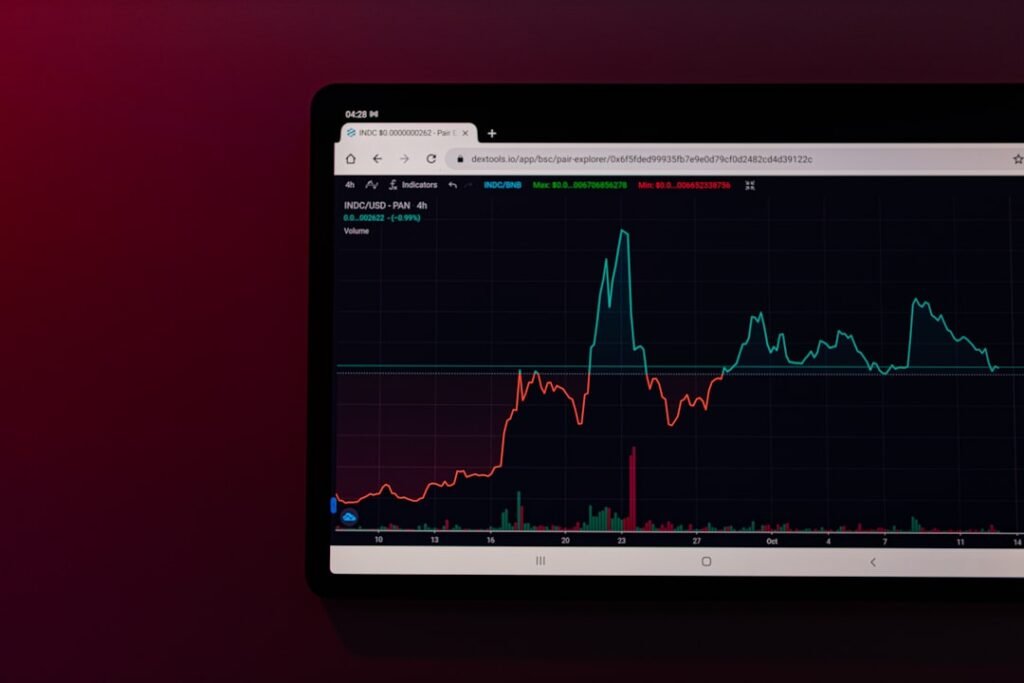Unlocking Global Finance: The Ultimate Guide to Wallet as a Service with Multi-Currency Support
In today's interconnected global economy, businesses face the monumental challenge of managing diverse financial assets across borders. The rise of cryptocurrencies and digital assets has added another layer of complexity, requiring robust solutions that can handle multiple currencies securely and efficiently. Enter Wallet as a Service (WaaS) with multi-currency support—a game-changing innovation that is transforming how businesses manage their digital finances.
What is Wallet as a Service (WaaS)?
Wallet as a Service is an infrastructure solution that enables companies to store, receive, and send cryptocurrencies through secure wallets without needing to build expensive infrastructure from scratch. Think of it as the financial backbone for the digital age—a comprehensive platform that handles the complexities of digital asset management so businesses can focus on their core operations.
For example, a traditional bank can utilize a WaaS platform to handle token management for clients without investing millions in developing proprietary systems. Similarly, fintech companies can leverage WaaS to offer crypto custody services to third parties, expanding their service offerings without the technical overhead.
The Power of Multi-Currency Support
At the heart of modern WaaS platforms lies multi-currency capability—the ability to manage diverse digital assets from a single interface. This isn't just about supporting Bitcoin and Ethereum; advanced WaaS solutions handle dozens of tokens including DOGE, DAI, ADA, and many more.
The benefits are profound: businesses can accept payments in multiple cryptocurrencies, expanding their customer base and entering international markets with ease. All cryptocurrency funds remain stored in one secure wallet, simplifying balance control and financial flow management. The built-in exchange capabilities allow direct currency conversion within the wallet, significantly reducing external conversion costs.
Cross-Platform Compatibility: Access Anywhere, Anytime
Modern WaaS solutions offer seamless functionality across both mobile and desktop devices, ensuring businesses can access and manage their assets regardless of location or device preference.
Web-based multi-currency wallets provide convenient access through any browser without installation requirements. These solutions feature automatic server-side updates, ensuring users always work with the latest version without manual interventions. The adaptive design guarantees a user-friendly experience on any display size, while robust API integration enables connections with trading platforms and DeFi services.
Mobile wallets take accessibility further by enabling on-the-go asset management with offline functionality for certain features. Enhanced security through biometric authentication (Face ID, fingerprints) combines with instant push notifications for transactions and balance changes. The interfaces are specifically optimized for mobile screens, and integration with payment systems like Apple Pay and Google Pay creates comprehensive financial management capabilities.
Advanced Security Measures
Security remains the paramount concern for any financial solution, and WaaS platforms incorporate multiple protection layers to safeguard digital assets. Sophisticated encryption keys controlled by users form the first defense line, while multi-factor authentication adds an additional security barrier.
Transaction signing prevents unauthorized or fraudulent transactions, and businesses can choose to manually approve every outgoing transaction. The ability to block specific addresses from transacting with your wallet provides further control over financial operations.
Advanced WaaS platforms automatically duplicate wallet addresses across multiple blockchains (Ethereum, Polygon, Avalanche, etc.) to prevent fund loss due to user errors. For instance, a USDT wallet on the BEP20 blockchain will be duplicated on the ERC20 blockchain, ensuring tokens aren't lost if sent via the wrong blockchain.
Industry-Specific Applications
The flexibility of WaaS solutions enables tailored applications across numerous industries:
Finance: Wallets enable businesses to manage diverse assets including cryptocurrencies and fiat currencies, simplifying cross-border transactions and investments. They enhance financial inclusivity, reduce processing time, and provide secure, efficient solutions for modern financial needs.
E-Commerce: Solutions support global e-commerce by integrating secure payment gateways for multiple currencies. Merchants can offer seamless checkout experiences, reduce transaction fees, and attract international customers with user-friendly payment options.
Gaming: Wallets support tokenized in-game currencies, allowing players to trade, buy, and sell digital assets securely. They enhance gaming experiences by supporting secure, real-time transactions across platforms and ensuring a dynamic digital economy.
Real Estate: Developed wallets handle global property investments, rent payments, and transactions securely. Businesses benefit from streamlined operations and enhanced transparency, making real estate investments accessible to a wider audience.
Healthcare: Wallets facilitate secure payments for healthcare services, ensuring smooth cross-border transactions. They empower patients and providers to handle payments efficiently, reducing delays and enhancing trust in global healthcare systems.
Travel and Hospitality: Crafted wallets support international travel payments, enabling users to book services and make transactions in different currencies. These solutions simplify processes for travel agencies and hospitality providers, improving user satisfaction.
Cost Efficiency and Staking Benefits
Modern WaaS platforms offer significant cost reductions, with some solutions reducing gas fees by up to 48%. Commission is paid only once, creating substantial savings for high-volume transactions.
The integrated staking capabilities allow businesses to generate passive income from their digital assets. For example, users can stake TRX tokens and earn annual yields of 3-5% depending on network conditions. The simplified interface and wallet integration make staking tokens straightforward, with easy yield claiming when due.
Additionally, users can reduce blockchain fees by converting staked TRX into bandwidth and energy points, further optimizing operational costs.
Customization and Control
Enterprise-grade WaaS solutions offer unprecedented control over financial operations. Businesses can specify minimal transfer amounts for wallets, ensuring the system doesn't accept deposits below threshold values. The self-activation capability allows users to activate blockchain wallets independently by sending coins to them, providing complete control over assets.
Unlike custodial solutions where third parties control private keys, non-custodial WaaS options ensure businesses hold their private keys, maintaining complete asset control without reliance on intermediaries.
Flexible confirmation settings allow businesses to receive callbacks after specified blockchain confirmations, while callback tags enable adding callback URLs with tags during deposit creation for enhanced transaction tracking.
White-Label Solutions for Brand Consistency
For businesses wanting to maintain brand consistency while offering advanced wallet functionality, white-label WaaS solutions provide the perfect answer. These allow companies to incorporate their branding throughout the wallet interface while leveraging the robust backend infrastructure of established providers.
White-label solutions significantly reduce time-to-market, enabling businesses to launch secure, feature-rich wallet applications without the development overhead. The customizable nature ensures the wallet aligns perfectly with existing product ecosystems and brand guidelines.
API Integration and Developer Support
Comprehensive API support enables seamless integration with existing business systems, creating unified financial ecosystems. Developer resources including detailed documentation, code samples, and technical support ensure smooth implementation processes.
Supported technologies typically include:
- Blockchain Networks: Ethereum, Binance Smart Chain, Polygon
- Wallet SDKs: Web3.js, ethers.js, Bitcoin Core
- Smart Contract Programming Languages
- Security Protocols: Elliptic Curve Cryptography, AES Encryption, SHA-256
- Front-End Languages and JavaScript Frameworks
- Back-End Languages
- DevOps Containerization: Docker, Kubernetes, OpenStack
Choosing the Right WaaS Provider
When selecting a Wallet as a Service provider, businesses should consider several critical factors:
Security Track Record: Evaluate the provider's security history and protocols. Look for features like multi-factor authentication, encryption standards, and compliance certifications.
Supported Currencies: Ensure the platform supports all the cryptocurrencies relevant to your business operations, both current and anticipated future needs.
Customization Options: Assess the flexibility to tailor the solution to your specific business requirements, including white-label capabilities and API access.
Fee Structure: Understand all costs involved, including setup fees, transaction fees, and any hidden charges that might impact your total cost of ownership.
Regulatory Compliance: Verify that the provider adheres to relevant financial regulations in your operating regions, including AML and KYC requirements.
Technical Support: Ensure adequate support resources are available, especially if operating across multiple time zones or requiring 24/7 assistance.
The Future of Digital Asset Management
As digital assets continue to gain mainstream acceptance, Wallet as a Service platforms will evolve to incorporate even more sophisticated features. We can expect enhanced DeFi integration, improved cross-chain interoperability, and advanced financial instruments built directly into wallet interfaces.
The convergence of traditional finance and digital assets will accelerate, with WaaS platforms serving as the critical bridge between these previously separate worlds. Businesses that adopt these solutions early will gain significant competitive advantages in managing their digital transformations.
Conclusion
Wallet as a Service with multi-currency support represents more than just a technological innovation—it's a fundamental shift in how businesses approach financial management in the digital age. By providing secure, flexible, and efficient solutions for managing diverse digital assets across platforms, WaaS empowers organizations to navigate the complexities of modern finance with confidence.
Whether you're a financial institution looking to expand into digital assets, an e-commerce business seeking to accept cryptocurrency payments, or an enterprise wanting to optimize your treasury management, implementing a robust WaaS solution can transform your financial operations while positioning your business for success in the increasingly digital global economy.
The future of business finance is multi-currency, cross-platform, and digitally native—and Wallet as a Service is the key to unlocking this future today.












